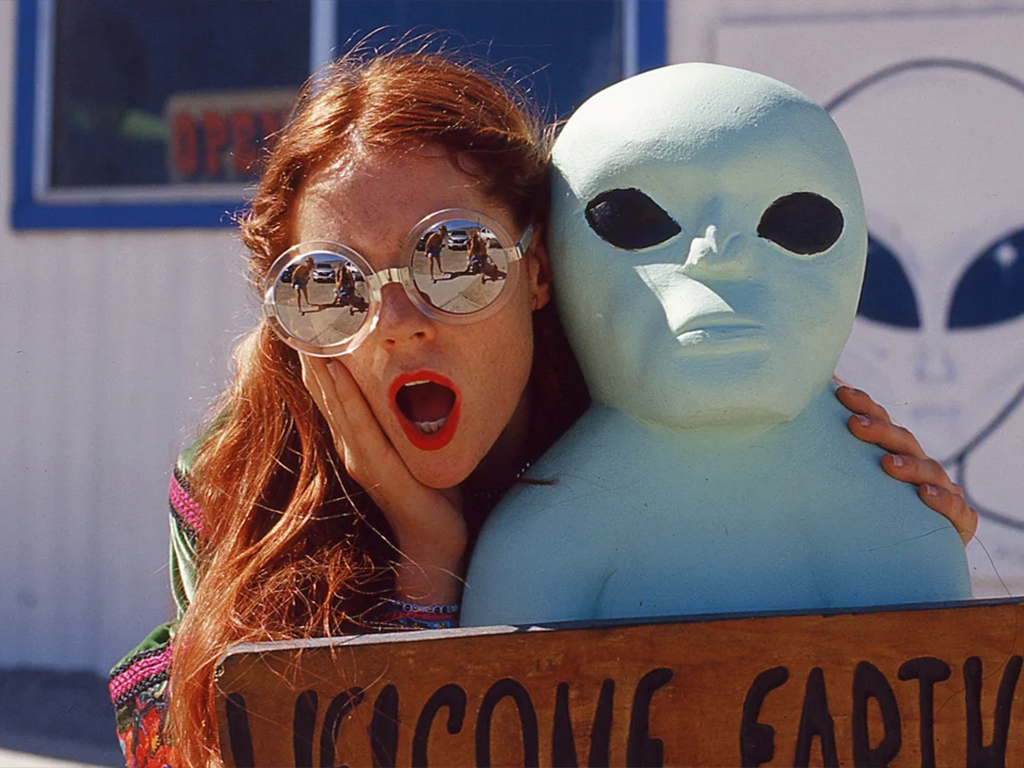Vibe:
"Underestimate the Girl" may contain elements of cinema vérité, but it's actually a carefully crafted music documentary. The emotional beats are perfectly timed, and the takeaway message is clear: no matter how many times the world tries to crush us, women will continue to rise up like a beautiful army of cockroaches.
I keep reading reviews of this film where the author is like, "It's so biased toward Nash." No shit, genius. She was a full-on collaborator and her name is in the title. Goldstein is still the director and ultimately has control over the project, but of course the slant favors Nash.
Best time to watch:
A few summers ago, I went through a music memoir phase and devoured these books:
- "Hunger Makes Me a Modern Girl" by Carrie Brownstein
- "Girl in a Band" by Kim Gordon
- "Clothes, Clothes, Clothes. Music, Music, Music. Boys, Boys, Boys" by Viv Albertine
- "Just Kids" by Patti Smith
During this time, I gave a few popular music documentaries a shot but thought they were either just okay or at worst, highly manipulative. Had "Underestimate the Girl" been out at the time, watching it would have been the perfect way to cap off my personal female musician marathon.
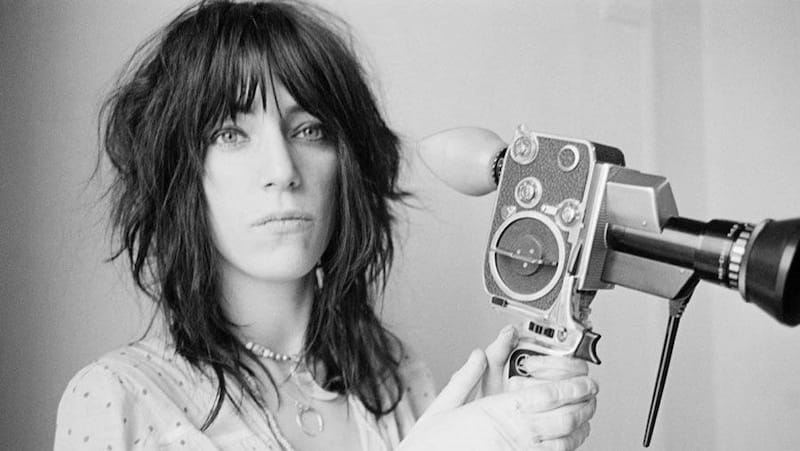
Worst time to watch:
This movie might be triggering for someone who is about to take a major creative career leap. Parts of it are really depressing and made me feel like if the insanely talented Nash can't make it work, why would I ever think that I can? It also made me hyper aware of how much I am not willing to suffer for art. I wouldn't exactly describe myself as materialistic, but there are certain things I'm not willing to sacrifice (like stable living conditions).
Where to watch:
Everyone in the UK can find it on the BBC. People in the rest of the world, stay tuned ... I suspect this one will get picked up by a US distributor sometime soon.
Quick summary:
Kate Nash is a singer-songwriter-actress who came to prominence in 2007 with her debut album, "Made of Bricks." When she decided to change stylistic directions on album #2, her label dumped her and she decided to try representing herself. While this may sound like a viable option, it's pretty fucking difficult. The film follows Nash as she navigates periods of financial instability and tries to figure out how to make profitable art on her own terms.
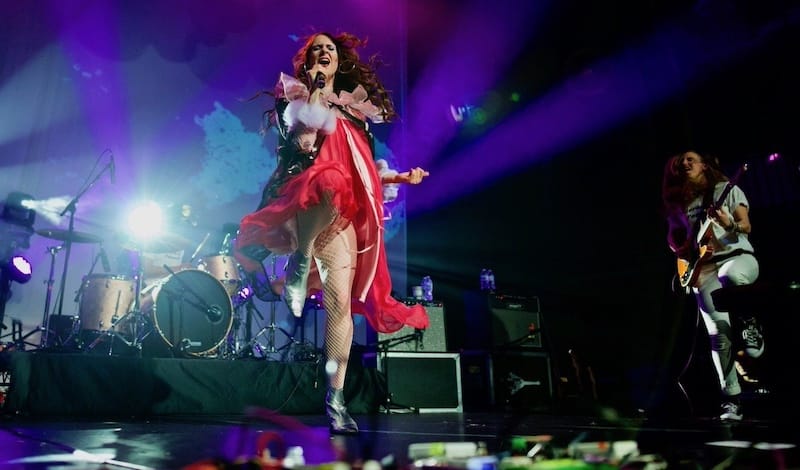
Thoughts:
I didn't know much about Nash before watching this documentary. I've always liked her music but have never considered myself a devoted fan. If anything, I've occasionally been turned off by her feminist brand image. I personally hate the whole "girl power, girl boss, girl gang" lingo that has invaded the cultural lexicon post-Trump. Marketers saw an opportunity to sell shit under the guise of empowerment and ran with it.
I went into "Underestimate the Girl" totally underestimating the girl. I was curious but skeptical and definitely didn't expect to like the film as much as I did. Nash gets flack for talking about how music is "life or death" because it sounds absurd to most people. She's not being hyperbolic, though. Nash is willing to suffer and die for her art, a point that becomes evident as she gets a job at a comic shop, sells a bunch of her clothes on consignment, and moves back in with her parents. Through it all, she has a much better attitude than I would.
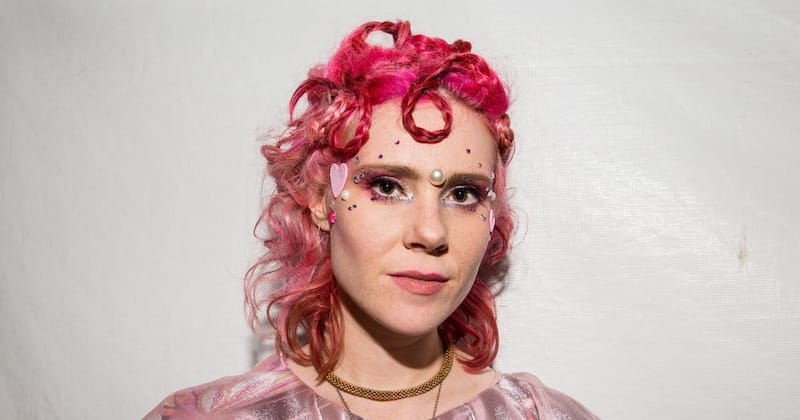
I have no interest in rehashing the entire plot of the movie for you, but Nash's story is not an uncommon one. She signed to a music label after being discovered on Myspace (RIP) at 18 and shocker, wasn't treated very well by them. She toured a lot, experienced some nagging mental health issues, and wasn't nurtured or defended as an artist. After her second album, "My Best Friend Is You," didn't do so hot, Nash was dumped by her label via text message. Presumably, they didn't like the punkier sound of her new material.
During the period that follows, she tries to make it on her own but realizes how expensive it is to self-fund tours and albums. In the midst of this difficulty, she finds out that her manager, Gary Marella, has been stealing from her. As her life begins to implode, she takes a trip to Death Valley with her dog and decides to leave Los Angeles. I actually thought the documentary was about to end at this low point and found myself looking back and wishing that it had. The doc spends so much time recounting her suffering that whenever her life begins to take a positive turn in the last fifteen minutes, it feels like a tacked on happy ending.
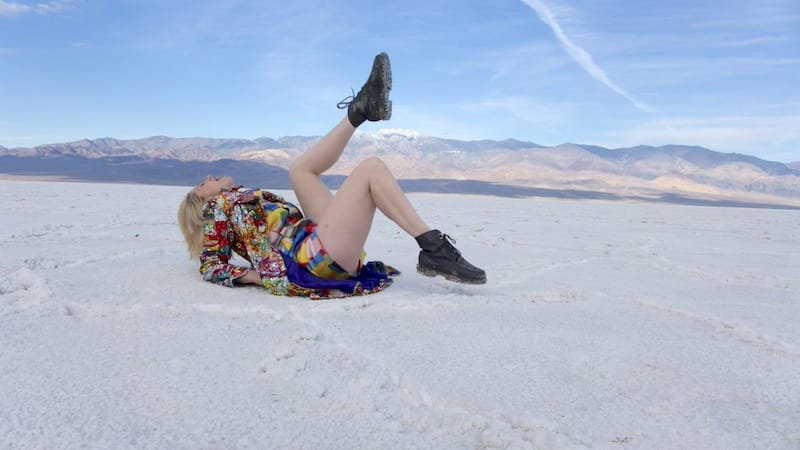
For me, Nash's story is a warning about what can happen when art is tied up with financial need. Some people are able to make it work by sacrificing part of their soul, sanity, or creative control, but others spend entire careers struggling. Of course, the music industry is a toxic place, especially for women. Like most industries, the people at the top make important decisions while those at the bottom do what they're told. When the bottom revolts and demands better treatment, heads begin to roll.
While Nash seems like a big deal to us plebs (a professional musician with awards and a fan base), the industry sees her in terms of money/album sales. If she's not pulling in what they expect her to, nothing else matters. Profit over people is a disgusting but sadly common business philosophy, especially in America. To achieve success, those involved are often required to harden their hearts and treat everyone with a heavy dose of skepticism. Nash is aware of this but refuses to participate.
I like that Goldstein gives Nash a camera and incorporates snippets of her daily life and thoughts into an otherwise polished documentary. Allowing this level of creative control ensures that late night/early morning thoughts are captured, along with rapidly unfolding events (like Marella's exploitation). Much of this footage feels like a video diary and lends authenticity to the emotional narrative arc. As viewers, we feel aligned with Nash and her plight, like we're hearing the details from a friend instead of a musician with an agenda. At the end of the film, her success feels all the more important since we spend so much time lingering in her sorrow.

Stray observations:
- Nash is a total hair chameleon. I truly don't understand how she manages to look good with flaming orange hair and dark roots.
- Stella (the dog) is a total sweetheart and very good girl - 12/10.
- If I had to move back into my parents' house at 30+ years old, I would have a complete mental breakdown. I wish I could figure out how to adopt Nash's relatively positive outlook in the face of hardships.
- The impromptu music videos are tremendously fun. Fans will love them. Hell, even my husband loved them, and he had no idea who Nash was before watching this film.
- I was at CMJ in 2015 when Nash played but completely missed her set (I forget why -- probably drugs). I did see BØRNS and they were great.
- Imagine walking into a consignment shop and stumbling across Nash's discarded sequins. Oh, to be one of those lucky people.
- This eye dress from Lollapalooza 2014 is my favorite look featured in the film:


